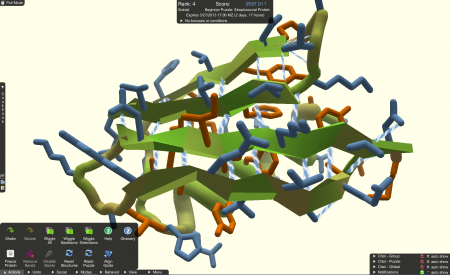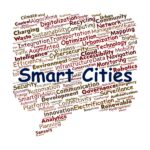Eric Schmidt, the former CEO of Google has written an interesting exposition on how artificial intelligence (AI) will impact how science gets done. From climate modelling to exploring the subatomic world, we are about to see what these latest large language models (LLMs), machine learning algorithms, and neural networks are going to do to scientific hypotheses, experimentation, analysis and observation.
AI is more than a computer program that is capable of human-like language comprehension and communication. It is its data assimilation and ability to recognize patterns within billions of bits of information that makes it a powerful tool for the advancement of science.
Imagine you are a scientist researching a new cure for malignant lymphomas. Conventional means of doing research involve a comprehensive search of all papers previously published on the subject. In addition, the scientist can look at the newest papers posted on preprint servers. These latter ones would have yet to be peer-reviewed. A third search might compile a list of eminent scientists in the field with contact information for you to access as needed. But now you can ask an LLM to do all of those queries and deliver the information in less time than it will take you to read this article.
Schmidt anticipates that much of science can be automated creating what he calls “self-driving labs.” These robot-driven research facilities will conduct experiments which at the beginning will be devised by humans, but later by the AIs to produce publishable research results.
Schmidt doesn’t believe this will sideline scientists, but rather will open opportunities for more to join in including citizen scientists who today are already contributing to advancements in many fields.
Even peer review could become an activity better done by an AI than a human. A dispassionate, impartial assessment of research can be difficult to obtain because often the reviewers are known to the author who may favour their opinions. But an AI wouldn’t be burdened by human connections in looking at new hypotheses.
Already we are seeing AIs excel at some scientific tasks. One is protein folding. Back in 2013, I posted an article about FoldIt, a game created by scientists at the University of Washington to help understand protein structures and their role in diseases. It invited humans to play the game and come up with new ways to fold proteins and by doing this help find potential cures for diseases. In 2018, an AI named DeepMind took on protein folding leading to the creation of a new tool called AlphaFold. Tasked in competition with humans it solved 25 of 43 protein-folding problems compared to the second-place human finisher with only three. Since AlphaFold’s introduction, researchers at the University of Washington have come up with even more powerful AI protein folders. The latest is RoseTTAFold which concurrently can solve multiple protein-folding problems.
Reproducibility is another challenge for scientists. In a 2016 paper published in Nature, it quotes a survey of 1,576 researchers with more than 70% admitting they failed to reproduce published results from their experiments. I get in my inbox periodic reports from a site called Retraction Watch, which exposes bad science and scientists. But it only catches a small number of papers reporting unreproducible experiments. The vast majority slip by. And even the papers Retraction Watch catches continue to get cited by scientists doing new research. An AI tool would catch the unreproducible with Schmidt arguing it would create “a greater trust in science.”
Schmidt states that “AI is such a powerful tool because it allows humans to accomplish more with less: less time, less education, less equipment. But these capabilities make it a dangerous weapon in the wrong hands.” That’s why he is calling for well-informed regulation of AI tools and their use for the benefit of science and humanity. Exploiting AI’s potential and recognizing the potential perils of using it, Schmidt states will allow “us to combine information in novel ways and bring creativity and progress in the sciences to new heights.”









